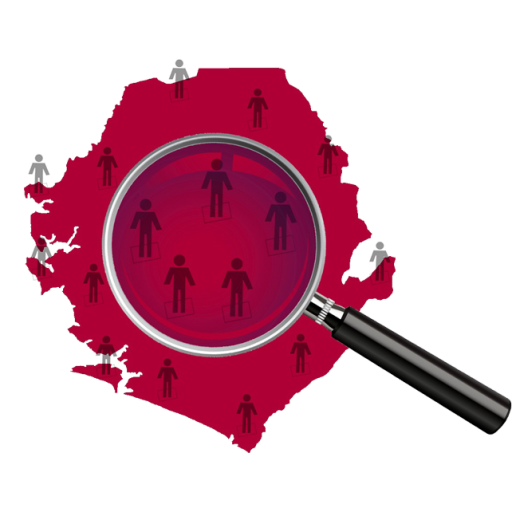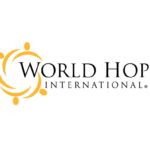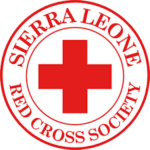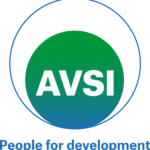Job Overview
-
Date PostedJanuary 9, 2024
-
Location
-
Expiration dateJanuary 22, 2024
-
Experience5 Years
-
GenderBoth
-
QualificationBachelor Degree, Master’s Degree
-
OrganizationChild Fund
-
Required LanguagesEnglish, Krio
Job Description
TERMS OF REFERENCE FOR
ENDLINE EVALUATION OF “THE INTEGRATED COMMUNITY BASED APPROACH TO COMBATING CHILD LABOURPROJECT”
| Location | Sierra Leone |
| Application Deadline | 22nd January 2024 |
| Contract Type | Consultancy to Conduct Endline Evaluation of the Integrated Community Based Approach to Combating Child Labour Project |
| Working Language | English |
| Expected Start Date | February 2024 |
- BACKGROUND
ChildFund International is a non-profit development organization working in 23 countries worldwide to improve the well-being of about 21.1 million children and families, regardless of race, creed, religion, and gender. ChildFund Sierra Leone has had a presence in Sierra Leone since 1985 implementing development programs that are geared towards providing positive outcomes for children living in poverty. Our key program interventions include child protection, early childhood development, health, nutrition, education, emergency response, disaster risk reduction, livelihoods, disability inclusion, youth, civic engagement, and leadership. We implement our programs through our local partners in collaboration with government Ministries, Departments and Agencies (MDAs), Non-Governmental Organizations, local councils, and other stakeholders.
Thousands of children globally are vulnerable and continue to face diverse forms of abuse, exploitation, neglect and violence. The ILO in 2018 for instance, reported an unrelenting increase in child labour despite many countries taking actions to combat it. In Africa alone, an astounding one fifth of children remain entangled in child labour; more than half devoting their time and energy in hazardous work with devastating consequence on their health, their safety and education as well as their moral development. West Africa has been a sub-region with worrisome Child Protection issues. At national level, Sierra Leone’s Child Protection landscape has similarly been challenged with barrage of issues ranging from the increase numbers of child abuse cases to weakened system and implementation of laws and policies. Among the series of child Protection concerns Sierra Leone is grappling with, Child Labour is one of such menace.
With limited statistics, comprehending the magnitude and consequence of child labour occurrences in Sierra Leone remain a daunting challenge yet the country continues to be a source, transit and destination for children bound into child labour majorly within the agricultural sector along with other forms of child abuses and exploitations like child trafficking, sexual exploitation, and violence against children (US Department of Labour, 2019).
The agricultural sector and its subsidiaries accounts for vast majority of child labour; an estimated 71% globally and 85% in Africa remain bound in child labour and mainly unpaid since they work on family enterprises, farms or accompany their paid parents. The children work long hours, their opportunity to attend school and develop their skills is limited and diminished thus interfering with their ability to access decent and productive employment opportunities later in life. Child labour in agriculture is difficult to address because the sector is generally under-regulated. In Sierra Leone, much of the work the children carry-out in agriculture aren’t age appropriate and are occasionally hazardous. All the above apart from affecting children’s physically, mentally, emotionally and health wise, interferes with their education. They are too tired to go to school the next day.
Acting in response to and complementing the African Union’s (AU) comprehensive action plan for achieving SDG 8.7 which demand and urges immediate prohibition and elimination of child labour in all its forms and construct by 2025 and the ECOWAS Framework to strengthen National Child Protection Systems, Tradin Organic (TRADIN Sierra Leone) in partnership with ChildFund Sierra Leone responded to this urgent call through the reactivation/activation and strengthening of community-based child protection structures and empowering households using an integrated approach.
This intervention was also based on the need to support local and national governments to better integrate child labour issues into development policies, strategies and programs through Supporting the self-organization of those who earn their livelihoods in the rural economy and strengthening their voice for collective bargaining and advocating for relevant public policies and efforts; mainstreaming child labour concerns into programs and policy; ending family farms and enterprises dependence on child labour; popularizing and disseminating the Child Rights Act among the rural communities; mitigating economic vulnerabilities associated with child labour by expanding/ supplementing incomes for poor households as well as in-kind support to farmer field schools (FFS) and village savings and loan associations (VSLA),
PROJECT THEORY OF CHANGE (TOC)
The overall objective of the project is to empower cocoa farming communities with knowledge and skills for the increased protection of boys and girls aged 5-17 against Child Labour
To contribute to the overall outcome of the project, the following hypotheses are considered:
- If communities and caregivers have adequate knowledge and skills on related hazards of child labour,
- And If community-based child protection mechanisms are coordinated and responsive to promote the protection, prevention and elimination of child labour, and
- And If caregivers of Deprived Excluded and Vulnerable (DEV) children are empowered with alternative options for livelihood,
- Then communities and families will have the ability to actively provide a safe environment that prevents and protects children from child labour and cultivates the holistic provision of child protection, so that children and adolescents aged 6-18 can have the opportunity to realize their rights and achieve their potential.
- PROJECT OBJECTIVES
The goal of the project is to “contribute to the prevention and elimination of Child Labour in Sierra Leone”. And there are 3 objectives that were supposed to help us achieve this goal as seen below:
- Objective 1: Strengthened formal and informal community Based child protection systems – Reporting, Response and Referral Mechanisms on child labour among children 6-17 years in Kailahun, Kenema and Kono districts by 2023.
- Objective 2: Strengthening livelihoods and economic capabilities of 6,000 cacao and coffee farming families for prevention and elimination of child labour among children 5-17 years in Kailahun, Kenema and Kono districts by 2023.
- Objective 3: Documenting and promoting greater knowledge base and coordination of child labour response and prevention efforts within the agricultural sector.
- EVALUATION OBJECTIVES
To measure the impact created at the end of the project, an endline evaluation will be conducted by a consultant or group of consultants. Key learnings will be recorded which can be replicated by ChildFund and other partners in future similar projects as well as gaps and challenges and mitigation strategies.
The objectives of this study should be derived from the research questions rooted in the Expected Project Outcomes. These objectives should look at how the following project outcomes were achieved:
- Empowered communities able to tackle child Labour and other child abuse cases.
- Community possessing skills and knowledge necessary for galvanizing community action to reduce and eliminate child labor, other child abuse cases, and improve the quality of community-level education.
- Economic situation of farmers is improved to support the wellbeing of their children through their membership in the VSLAs.
- Adult family members gain knowledge, skills other capabilities that allow them to find alternative livelihood opportunities, increasing their incomes and eliminating the need for their children to work.
- Increased school access, enrollment, retention and completion rates among children living in cocoa & coffee farming communities as a result of increased economic status of caregivers/parents.
- Reduction in child labour and other child protection issues in project communities
- SCOPE OF THE EVALUATION
The evaluation will be conducted in 54 communities in 9 Chiefdoms in 3 districts of Kailahun, Kenema and Kono with registered farmers of Tradin Organic, children aged 5-17years and other key stakeholders including teachers, local chiefs, local protection structures, local human right organizations, health personnel, police/FSU, women organization, social workers and civil society organizations, staff and volunteers in Tradin Organic operational communities in Sierra Leone. IQSMA Solutions which was contracted to carry out an independent monitoring of the project implementation cycle will add to the stakeholders list as it will be in position to give independent insight in the project results, developments, challenges etc. The nine (9) chiefdoms are Peje West, Yawei, Luawa (Kailahun District); Gorama Mende, Malegohun, Lower Bambara (Kenema District); Gbane, Gbane Kandor, Sandor (Kono District)
- RESEARCH DESIGN
It is important to note that the endline evaluation will build on the Child Labor Assessment conducted before the start of the intervention. Even though the consultant or group of consultants are expected to propose a standout methodology, they are encouraged to keenly review the baseline assessment (Child Labour Assessment) methodology and proffer a methodology that will not significantly shift away from the baseline. On this note, the methodology, sampling technique and sample size, tools, data collection and analysis used by the consultant or group of consultants must build on the baseline assessment research design that will help us to visibly see the impact of the project, if any.
- ETHICAL CONSIDERATIONS AND SAFEGUARDING
For this evaluation, the firm will administer ChildFund’s informed consent form and the safeguarding policy to all respondents. All participants in the Child Labour Survey are required to read carefully and then sign the Code of Ethics document as evidence that it has been read and understood. The firm will also ensure participants’ privacy is observed by anonymizing data and using it solely for the intended research purpose. Also, the consultant is expected to sign ChildFund’s Safeguarding policy (which will be annexed together with other policies to this TOR) before the commencement of the research and also comply with the details therein.
- CONSULTANCY PRODUCTS
- Proposal explaining the methodology, research design, data collection and analysis techniques, sample size and statistics and a schedule of evaluation activities.
- Detailed budget explaining daily professional fees and cost of the evaluation.
- Inception report providing full literature related to child labour in Sierra Leone and the Integrated Community Based Approach to Combating Child Labour Project intervention, the methodology, research design, data collection and analysis techniques, sample size and statistics and a schedule of evaluation activities.
- A draft and final evaluation report (in Microsoft Office and PDF)
- PowerPoint presentation summarizing visualization of the key impact or achievements as compared to the baseline.
- TIMELINE AND SCOPE
The evaluation will be conducted within a period of one month upon the signing of contract between the firm/individual and ChildFund and scope as given in the Terms of Reference or as would be agreed during the signing of the contract with the project team.
| ACTIVITY | Timeline
(Days) |
Responsible person |
| Submit Inception Report and review of plan | 2 | Consultant |
| Provide Feedback on Inception Report | 1 | ChildFund |
| Meeting with ChildFund | 1 | ChildFund and Consultant |
| Submit revised Inception Report (Consultant) | 1 | Consultant |
| Develop endline evaluation tools – hard and digital copies | 2 | Consultant |
| Review the endline evaluation tools – hard and digital copies | 2 | ChildFund |
| Conduct Endline evaluation training for enumerators | 2 | Consultant |
| Conduct endline evaluation | 9 | Consultant |
| Clean and analysis endline data | 3 | Consultant |
| Submit endline evaluation draft report to ChildFund | 5 | Consultant |
| Provide feedback to the endline evaluation draft report | 1 | ChildFund |
| Submit endline evaluation final report to ChildFund | 1 | Consultant |
- PAYMENT SCHEDULE:
The payment for this consultancy will be done in three tranches:
| Phases | % | Precondition |
| 1st Tranche | 50% | After award of contract, upon submission and approval of inception report |
| 2nd Tranche | 40% | After submission of Draft Report |
| 3rd Tranche (Final payment) | 10% | After approval of Final Report |
Note:
- Payment will be processed within 2 weeks upon submission of invoices. The period for this endline study is one month.
- PROFILE OF CONSULTANTS/INDIVIDUAL CONSULTANTS
- The consultant/group of consultants must have at least 5 consecutive years’ experience in qualitative and quantitative research
- Must have led series of evaluations with reputable INGOs within and/or outside the country.
- The group of consultants (if a group) must have a multidisciplinary team in social sciences, with knowledge and experience of at least 5 years in conducting large-scale process and outcome evaluations as well as household surveys, with coverage in rural areas and indigenous peoples.
- Must have vast knowledge in the use of virtual systems like Microsoft Teams, Zoom, etc. in conducting a collaborative meeting.
- Must be willing to attend virtual training with ChildFund to fully understand the use of our tools and systems to conduct the baseline.
- Must have Knowledge of digital data collection and processing applications and programs such as ODK/KOBO, CommCare, SPSS, Excel Analytics etc.
- Other relevant documents like registration documents for firms.
- The consultant or group of consultants must submit the Profile summary of team members and CVs
Applicants should submit documents through the email: SierraLeoneProcurement@ChildFund.org and copy bsartie@childfund.org with email clearly marked with the title of “Consultancy for Endline Evaluation of the Integrated Community Based Approach to Combating Child Labour Project”
Closing date for submission of complete applications is 22nd January 2024. Only applicants with complete documents will go through the selection process and only shortlisted applicants will be contacted.







